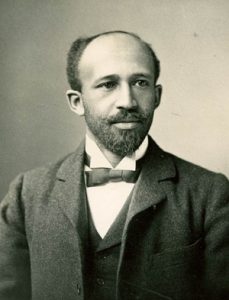- About us
- Background
- Collections
- Membership
- Contact

The Department of Special Collections and University Archives of the UMass Amherst Libraries (SCUA) collects and preserves textual, visual, auditory, and digital materials of enduring value and makes them available to researchers, regardless of affiliation at no charge.
SCUA’s collections are rich and deeply interrelated, documenting four areas of historic and cultural interest: the history and experience of social change in America, the people and cultures of New England, the history of the University of Massachusetts and its broader community, and innovation and entrepreneurship.
Hours:Monday through Friday, 9:30 a.m. to 5:00 p.m., during the academic year, except major holidays. During semester breaks, on certain holidays, and in the summer, SCUA is open 10:00 a.m. to 4:00 p.m. SCUA will be closed on days when the W.E.B. Du Bois Library is closed.A steward of the past for generations to come, SCUA inspires discovery and advances scholarship through astute curation of cultural heritage materials. As part of a community dedicated to the values of diversity, social equity, and positive social change, SCUA acts through its collections, programs, and exhibitions to promote free inquiry, the production of knowledge, and joy in learning.
In 1931, nearly half a century after Librarian Henry Hill Goodell first authorized the permanent retention of the official records of Massachusetts Agricultural College, the Library established a College History Collection. As the official record of the activities of the university’s administrators and faculty and a reflection of the life of its students, this collection grew steadily, until in 1953, the Library dedicated a room named in honor of Dean William L. Machmer to serve as the first true home of the University Archives.
Goodell’s initiative to assemble the College archives coincided roughly with the Library’s first efforts to build a collection of rare books to support its educational mission. Although the College had no separate library until 1885, its administrators nevertheless accepted several significant gifts of books, beginning with the 1868 donation of twenty scarce volumes on bee culture from the apiculturist and state Adjutant General Henry K. Oliver. By the time the library published its first catalog in 1875, rare books formed a small, but notable part of the collections, focused on the primary academic interests of the early college: agriculture, horticulture and botany, and the natural sciences. Among the Library’s earliest acquisitions were the first London edition of William Bartram’s Travels Through North and South Carolina (1792), François Augier de Marigny’s The History of the Arabians (London, 1758), and early bee manuals by John Keys, The Practical Bee-Master (London, 1780) and The Antient Bee-Master’s Farewell (London, 1796) — both courtesy of Oliver. All remain part of the collections today.
From these beginnings, the collections of rare books and manuscripts have evolved in concert with the evolution of the university and its academic programs. With the acquisition of the records of the Valley Peace Center and the papers of ethnographer Jozef Obrebski in 1973, the Library began to acquire collections of personal papers and organizational records of historical significance, and the arrival of the papers on W.E.B. Du Bois in that same year marked a turning point. The rare book and manuscript collections were combined administratively with the University Archives in the early 1990s to form the current Department of Special Collections and University Archives.
SCUA’s initial foray online came with a simple page on the library’s website in 1997, but by 2007, evolved into the UMarmot project, one of the earliest efforts to use freely-available software to create a comprehensive online archival catalog. SCUA launched its online digital repository, Credo in 2011, thanks to generous support from the Verizon Foundation, the National Endowment for the Humanities, and the National Historic Publications and Records Commission. The papers of W.E.B. Du Bois led SCUA’s way into the digital realm, followed by the papers of Horace Mann Bond, and then dozens of of other collections.
The Department of Special Collections and University Archives is a center for research into the history and impact of social change and the history and cultures of New England.
Regardless of format, the collections in SCUA are richly interconnected, with particular depth for a suite of movements devoted to social justice. We have exceptional holdings for African American history and culture; organized labor; the peace, antiwar, and antinuclear movements; political and cultural radicalism; alternative societies; spiritual approaches to social change; and the history of agriculture, with an increasing emphasis on organic agriculture and sustainability.
SCUA houses approximately 40,000 rare books, hundreds of thousands of photographs, and nearly 45,000 linear feet of archives, including nationally significant manuscript collections and the official records of the University of Massachusetts Amherst. SCUA supports the work of a wide range of researchers, from undergraduates to senior scholars and journalists to family historians, and we are resource for the individuals and communities we document.
In addition to the major areas of collecting interest, SCUA in home to an eclectic assortment of materials documenting Revolutionary-era France and Belgium (1789-1848); the history of protistology; and the American study of Japan.
Although our goal is to facilitate free and unfettered access to the materials under our care, Special Collections and University Archives (SCUA) may assess fees to recover the costs of reproduction or for publication of graphic materials. SCUA provides photocopies and reproductions in reasonable amounts for scholarly use under the following conditions:
- Copies are prepared solely for the use of the researcher and may not be reproduced, published, broadcast, or placed in other repositories without the prior written permission of the Head of Special Collections and University Archives.
- SCUA does not sell photocopies, photographs, or digital reproductions. Fees are assessed for services in identifying, copying, and transmitting duplicates.
- Copies are made only by SCUA staff.
- SCUA reserves the right to limit the number of photoduplicates in any order and may decline to make duplicates if the item might be damaged in the process.
- Orders are limited to no more than 400 photocopies per researcher, per month.
Except for brief excerpts, SCUA will not duplicate copyrighted material without the written permission of the copyright owner. Researchers assume sole responsibility for any infringement of copyright. Permission to publish must be requested separately, in writing.
The Department of Special Collections and University Archives (SCUA) makes reasonable attempts to clarify the copyright status of materials under its care, but cannot claim copyright for every individual item: even if a donor has transferred intellectual property to the letters she has written, for example, she cannot transfer copyright to letters written by others. When it comes to letters received by the donor — half or more of most collections — copyright remains with the writer.
Researchers are legally obligated to ensure their full compliance with the laws pertaining to copyright and intellectual property and must obtain written permission from all interested parties. By itself, permission to examine or duplicate materials held by SCUA does not constitute authorization to publish those materials. A separate written request for permission to publish must be made in advance to SCUA, and permission will be granted only after SCUA has received a properly completed permission form signed by the requester, along with payment for any applicable fees.
An approval of permission to publish from SCUA does not imply that all copyright demands have been met. The University of Massachusetts Amherst assumes no responsibility for infringement of copyright held by others: full responsibility for infringement is assumed by the individual requesting permission to publish.
154 Hicks Way
UMass Amherst Libraries

Leave a Reply
You must be logged in to post a comment.